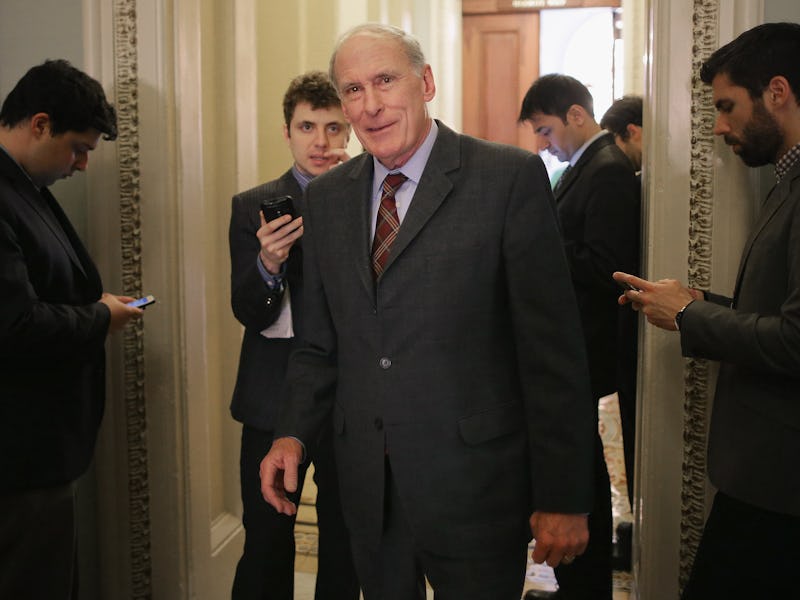Anonymous Accuses Dan Coats and Other Politicians of KKK Membership
Several politicians have been outed as potential members of the hate group, but there are way more volatile and scarier groups out there.

Hacker collective Anonymous dropped what it claims is a bombshell over the weekend, naming several American politicians with alleged memberships or ties to the Klu Klux Klan. The group posted their emails and phone numbers to the website Pastebin in an effort to publicize the endeavor.
Among those named are four senators and five mayors, all of whom represent constituencies in heavily conservative swaths of the South.
Anonymous' leak on Pastebin
Anonymous also released a statement, calling their latest project Operation KKK:
“After closely observing so many of you for so very long, we feel confident that applying transparency to your organizational cells is the right, just, appropriate and only course of action.”
For all of their damning, shame-laden rhetoric, Anonymous’ leaks haven’t really done much to compromise the stature of any public official with alleged ties to the KKK. A few of the officials who have made public statements did so on social media, dismissing the allegations as banal slander.
Dan Coats, a senator from Indiana, long a KKK stronghold, whipped up a quick tweet to quietly put the issue to bed, at least from a PR vantage point.
Madeline Anne Rogero, mayor of Knoxville, Tennessee, sought to squash any uncertainly with a lengthy Facebook post.
“Given my background, my interracial family, my public record and my personal beliefs, this would be hilarious except that it is probably being seen by a lot of people who have no idea who I am,” she wrote.
Other public officials, including Texas senator John Cornyn, who routinely takes to Twitter to stoke conservative fascination with Obamacare and Hillary Clinton’s emails, haven’t even acknowledged that they were also implicated. As there is truly no way of verifying whether or not any of Anonymous’ leaks are based on actual fact (or if Anonymous is actually behind the leak in the first place), a simple dismissal of the contentious claims is easy as a 140-character statement. Many of those politicians named, like North Carolina Senator Thom Tillis, have a track-record of voting in favor of racially-tinged voter-ID laws and anti-LGBT legislation.
Despite their crusading gusto, the leaks might even be focusing on a vestige of America’s racist history that isn’t quite as prevalent or as powerful as it used to be. The KKK — America’s original hate group — pales in both the influence and energy that younger, much more volatile groups wield today in the United States. The Southern Poverty Law Center’s “Hate Map,” a tool that tracks 784 hate groups operating in the US, is peppered with comparatively few Klan groups, while neo-Nazi and skinhead organizations abound across the landscape from coast to coast.
“The SPLC has estimated that there are, at most, 4,000 to 6,000 Klansmen in America today, a far cry from the estimated 40,000 Klansmen active in the 1960s,” Mark Potok, a senior fellow at the SLPC, wrote in 2014.
This also isn’t the first time Anonymous has sought to illuminate the identities of various people aligned with hate groups. The group’s “Operation Blitzkrieg” in 2012 prompted a maelstrom of website glitches and a minor climate of panic among the legions of internet domains targeted.
Anonymous intends to release the identities of 1,000 K.K.K. members by November 5th.